The most severe criminal offense in PA is classified as a felony.
Understanding the legal classification of crimes is essential for anyone navigating the Pennsylvania justice system. Felonies, in particular, carry significant consequences that can impact individuals for years to come. At Bonner Law, we believe in empowering our clients with knowledge, which is why we’re delving into the intricacies of felonies in Pennsylvania.
What is a Felony in PA?
In Pennsylvania, felonies are serious crimes that carry severe penalties, including imprisonment for one year or more. Unlike misdemeanors, which are less serious offenses, felonies are classified into three degrees based on the severity of the crime and the potential consequences:
- First-Degree Felonies: These are the most serious offenses and carry the harshest penalties, including lengthy prison sentences and substantial fines. Examples of first-degree felonies in Pennsylvania include murder, rape, and certain drug trafficking offenses.
- Second-Degree Felonies: While less severe than first-degree felonies, second-degree felonies still carry significant penalties, including imprisonment and fines. Examples of second-degree felonies include aggravated assault, burglary, and some drug-related offenses.
- Third-Degree Felonies: Third-degree felonies are the least severe category of felonies but still entail substantial consequences, such as imprisonment and fines. Examples of third-degree felonies in Pennsylvania include robbery, certain theft offenses, and some drug possession offenses.
Implications of Felonies in Pennsylvania
Being convicted of a felony in Pennsylvania can have far-reaching consequences beyond the immediate penalties. Some of the potential implications of felony convictions include:
- Loss of certain civil rights, such as the right to vote or own firearms.
- Difficulty securing employment, as many employers conduct background checks that reveal felony convictions.
- Challenges obtaining housing, as landlords may be reluctant to rent to individuals with felony records.
- Restrictions on professional licenses, which may impact individuals in certain fields such as healthcare or law.
Legal Representation for Felony Cases
If you or a loved one is facing felony charges in Pennsylvania, it’s crucial to seek competent legal representation as soon as possible. A skilled criminal defense attorney can help protect your rights, navigate the complexities of the legal system, and work towards achieving the best possible outcome for your case.
At Bonner Law, our experienced team of attorneys is dedicated to providing aggressive advocacy and personalized legal solutions for individuals facing felony charges. We understand the gravity of these situations and are committed to fighting tirelessly on behalf of our clients.
Conclusion
Navigating the legal landscape surrounding felonies in Pennsylvania can be daunting, but with the right knowledge and legal representation, individuals can effectively defend their rights and mitigate the consequences of felony charges. At Bonner Law, we are here to provide the guidance and support you need during this challenging time.
If you’re facing felony charges in Pennsylvania or have questions about your legal rights, don’t hesitate to contact Bonner Law today. Our compassionate and experienced attorneys are ready to assist you every step of the way.


